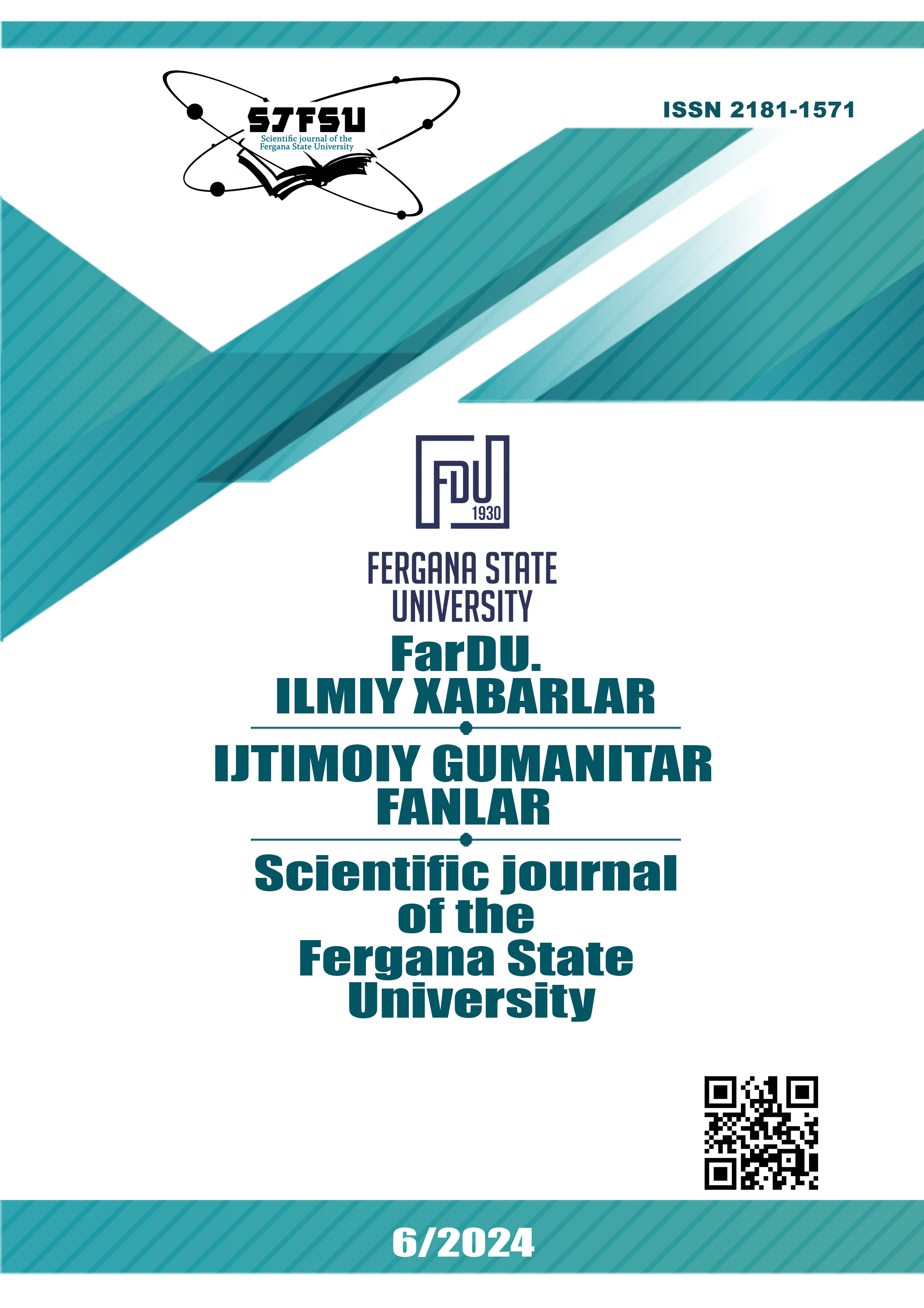STABLE RELIGIOUS ASSOCIATIONS FORMED ON THE BASIS OF ISLAMIC DOCTRINE
Keywords:
Islamic teaching, religiolinguistics, hadith studies, ideology, religious view, stable religious unity.Abstract
This article is about the importance of Islamic teachings in the formation of stable religious compounds in linguistics, and it mainly talks about the content of the Holy Qur'an, which exists in the Uzbek language, and the essence of religious units related to the science of hadith. . It also focuses on the branches of religious linguistics, such as religiolinguistics and hadith studies, and provides information about the semantic peculiarities of this type of terminological field. The research of the article is aimed at carrying out the study of the system of religious terminology from a semantic point of view: its subject aims to comprehensively illuminate the semantic and etymological, linguo-cultural characteristics of proverbs, matals, idioms, expressions, which are religious stable compounds, and their application clarifies the position. At the same time, their similarities and differences, scientific aspects, direct connection with other fields of science, the national, cultural, spiritual, and religious concepts they represent, the original meaning of these units and the circumstances of their figurative origin are revealed. is given. Religious stable units are religious linguistic units with a figurative meaning in the form of a phrase, a sentence, which provides a complete unity. There are a lot of debates on the concept of a stable religious compound, and linguists of the world present a number of opinions on it. In order to make these comments more open, the scientific views of world and local linguists were addressed.
References
Григорьева Л.Л. Фразеологическая репрезентация религиозного мира человека (на материале русского, английского и арабского языков): Автореф. Дисс…канд. Филол. Наук. – Казань: 2009. – 21 с.
Чикина Е.Е. Фразеология в аспекте христианской культуры (на материале немецкого, английского и русского языков). Монография. – Владимир: Изд-во Нижегор. Гос. Лингвист. Ун-та им. Н.А.Добролюбова, 2004. – стр. 300.
Raxmatullayev Sh. O‘zbek tilining etimologik lug‘ati. II nashr. – Toshkent: “Universitet” nashriyoti, 2023. – 600 b.
Husniddinov Z. Islom ensiklopediyasi. O‘zbekiston milliy ensiklopediyasi. Davlat ilmiy nashriyoti, 2004. – b. 41.
Hasanbayev O‘. Diniy-ma’rifiy va ijtimoiy-ma’naviy soha targ‘ibotchilari uchun ayrim atama va tushunchalarning izohli lug‘ati. – Toshkent: “Shamsuddinxon Boboxonov” NMIU, 2020. – 607 b.
Bozorboyev K. O‘zbek so‘zlashuv nutqi frazeologizmlari. Filol.fan.nomz..diss.avtoref. – Samarqand: 2000. – B. 7.
Jahangiri Mohsen. Mohyi al-din ibn Arabi, The distinguished figure of Islamic Mysticizm. – Tehran: Tehran University Press, 2004.
Xolmo‘minov J. Vahdat ul-vujud teologik ta’limoti va Naqshbandiya tariqati. Maqola. Konsensus xalqaro jurnali. 1-son, 1-jild. – Toshkent: 2020. – B. 128-139.
Downloads
Published
Issue
Section
License
Copyright (c) 2024 Scientific journal of the Fergana State University

This work is licensed under a Creative Commons Attribution-NonCommercial-NoDerivatives 4.0 International License.

